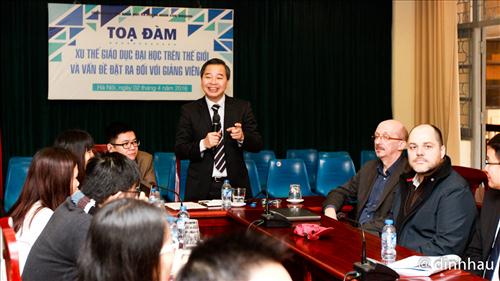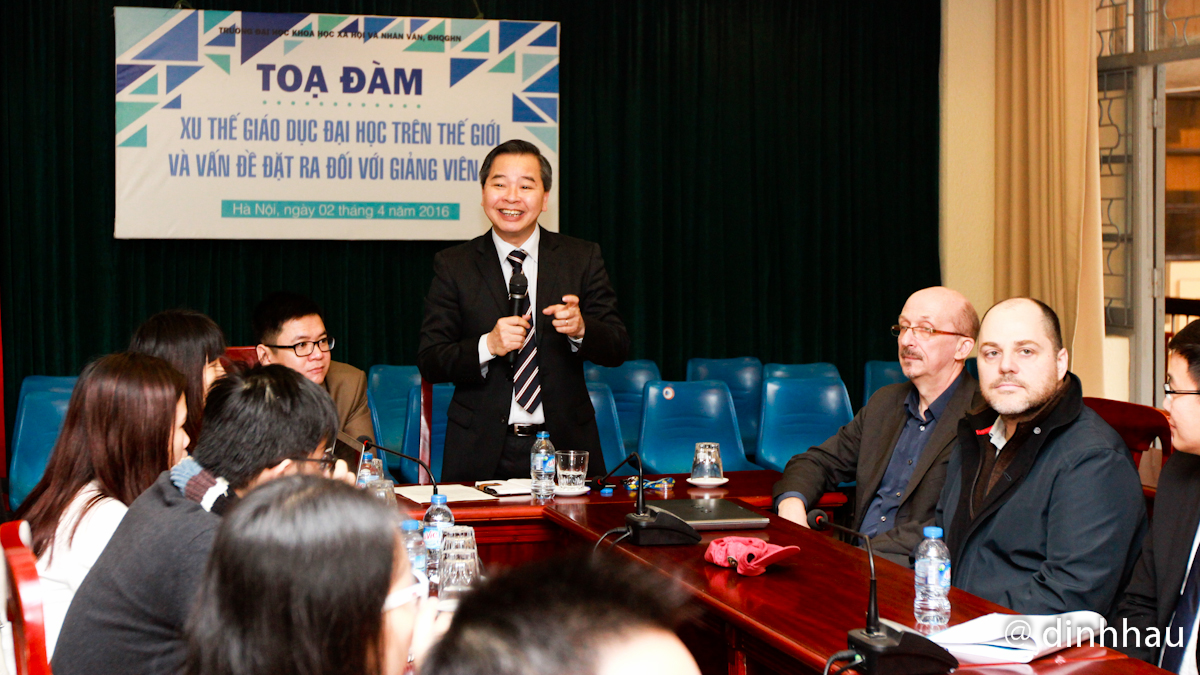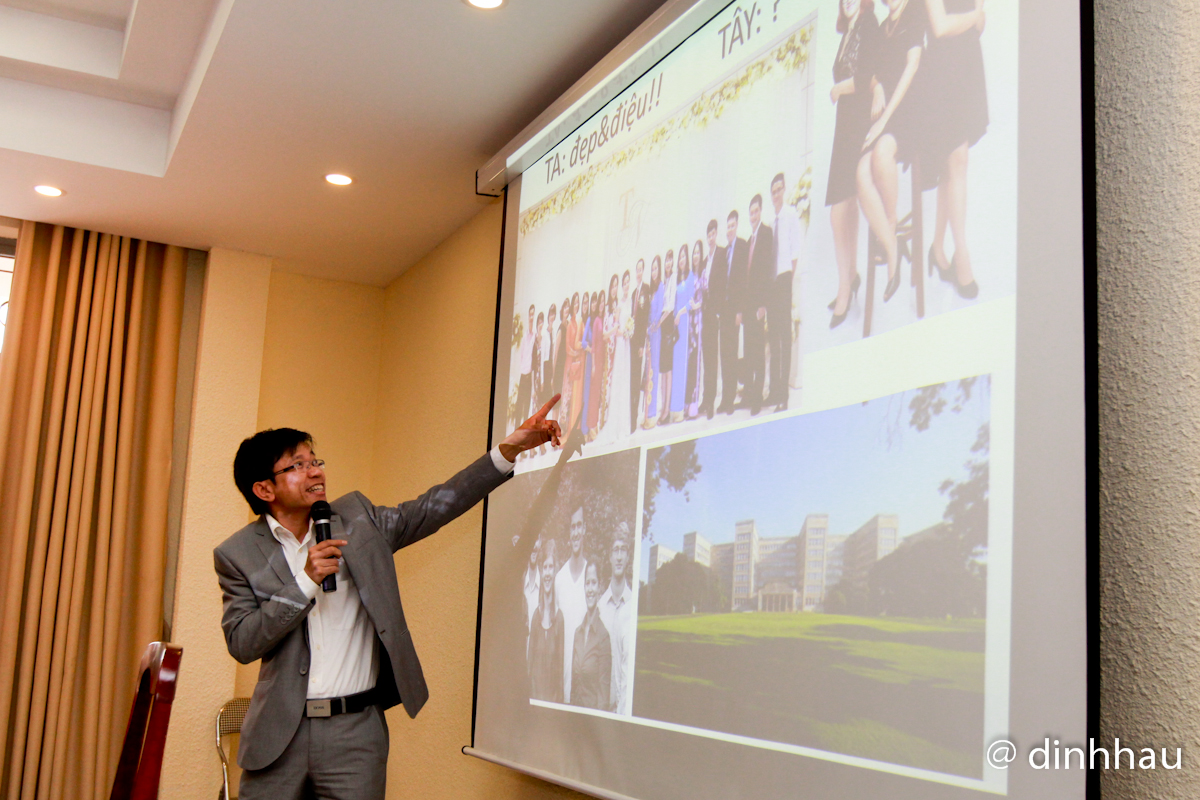
Facing the challenge of higher education developments in the world, the Vietnam Party and State have devised policies to support scientists in Viet Nam such as through various scholarships following project 322 and project 911. As for USSH, the University’s leadership has resolutely promoted supporting budget for its staff to improve their capacities; offering direct rewards for international publications (the annual budget is not less than 200 million VNDs). “And for us, the young staff, what are we doing?” Assoc. Prof. Dr Pham Quang Minh asked.
Many scientists around the world and Vietnam have said Vietnam is a "fertile" country for social sciences and humanities. Vietnam is like a living museum, which offers everything for scholars. But if they are unable to catch up with current trends or actively change themselves, the young Vietnamese researchers in general and those of USSH in particular are still at the risk of being marginalized.
Assoc. Prof. Dr Pham Quang Minh said: “The tradition of VNU put pressure on the young staff as they have to stand on the shoulders of their predecessors. But we have to overcome this to continue our history and affirm USSH’s trademark in the future.

Assoc. Prof. Dr Pham Quang Minh speaks at the seminar
In order to increasingly promote the process of integration and development, Assoc. Prof. Dr Pham Quang Minh proposed the Office for Personnel Affairs make early investigations and devise plans to encourage the young staff. Accordingly, besides rewards for scientific research, the University will create similar policies for skilled teaching staff, because good teaching will be the premise of good research, which will facilitate exciting teaching sessions at classes.
At the seminar, many scholars also agreed with the statement: the future of USSH is in the hands of young lecturers. Therefore, the core development strategy is to focus on its staff, especially the young staff. According to Assoc. Prof. Dr Tran Khanh Duc (Hanoi University of Science and Technology), the young lecturers need to acquire good English to access research materials all over the world. Because 80 percent of the research materials today are written in English, if young researchers don’t have English, they can’t grow.
In addition, the young lecturers need to be aware that they are “teachers” not “teaching workers”. Their challenge is to familiarize themselves with the various cultural, political and social backgrounds. When lecturing, they are advised to convey this diverse knowledge to students without relying primarily on what is available in their syllabi.
Students are becoming increasingly passive and teachers need to find ways to eliminate this disadvantage. "Don’t create too much pressure. Instead be flexible in connecting and spreading knowledge", said Assoc. Prof. Dr Hoang Anh Tuan (USSH's Vice Rector), "sometimes, we have to motivate the students as they are our companions and change the way of transmitting interesting and useful knowledge.

Assoc. Prof. Dr Hoang Anh Tuan presents his ideas at the seminar
Besides good teaching, the Vietnamese young researchers also need to pay attention to studying and publishing scientific products, as only they can offer new knowledge and create collective and social merits.
Dr. Kosal Path, New York City University, said: “Research is the only way of creating new knowledge. It's inappropriate when lecturers always ask their students to participate in scientific endeavors but they themselves have no publications”. And “in reality in the US, leading universities have always considered scientific research a prerequisite criterion for the qualification of PhD students”.
Via his presentation: “The position of young lecturers in universities in Vietnam and Germany: A few comparative thoughts”, Assoc. Prof. Dr Hoang Anh Tuan emphasized :“Young lecturers should always remind themselves their studies are their “blood” and “career” and also a way to make societal contributions”.
Author: Dinh Hau
Reader Comments
Newer articles
Older articles